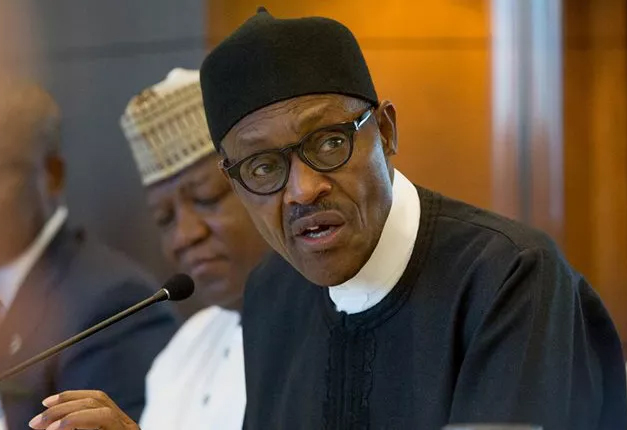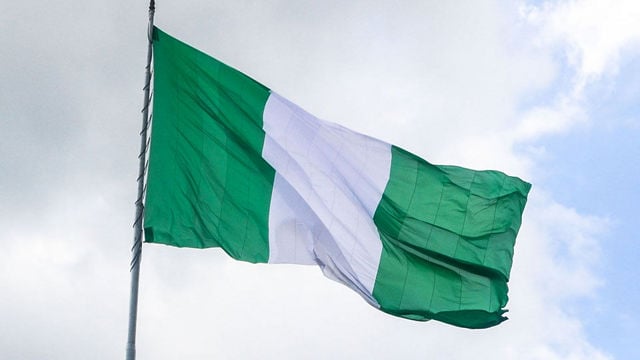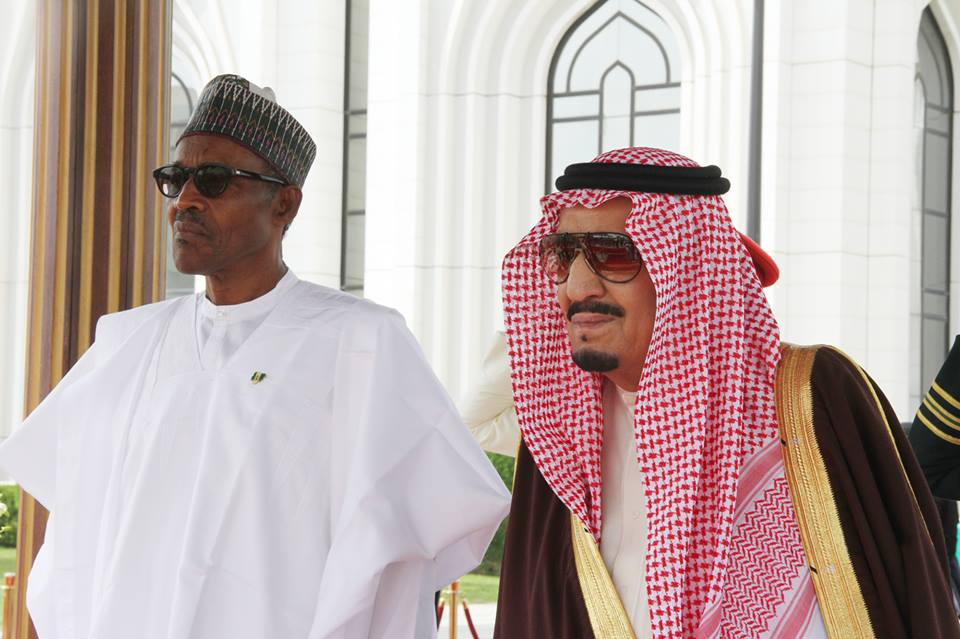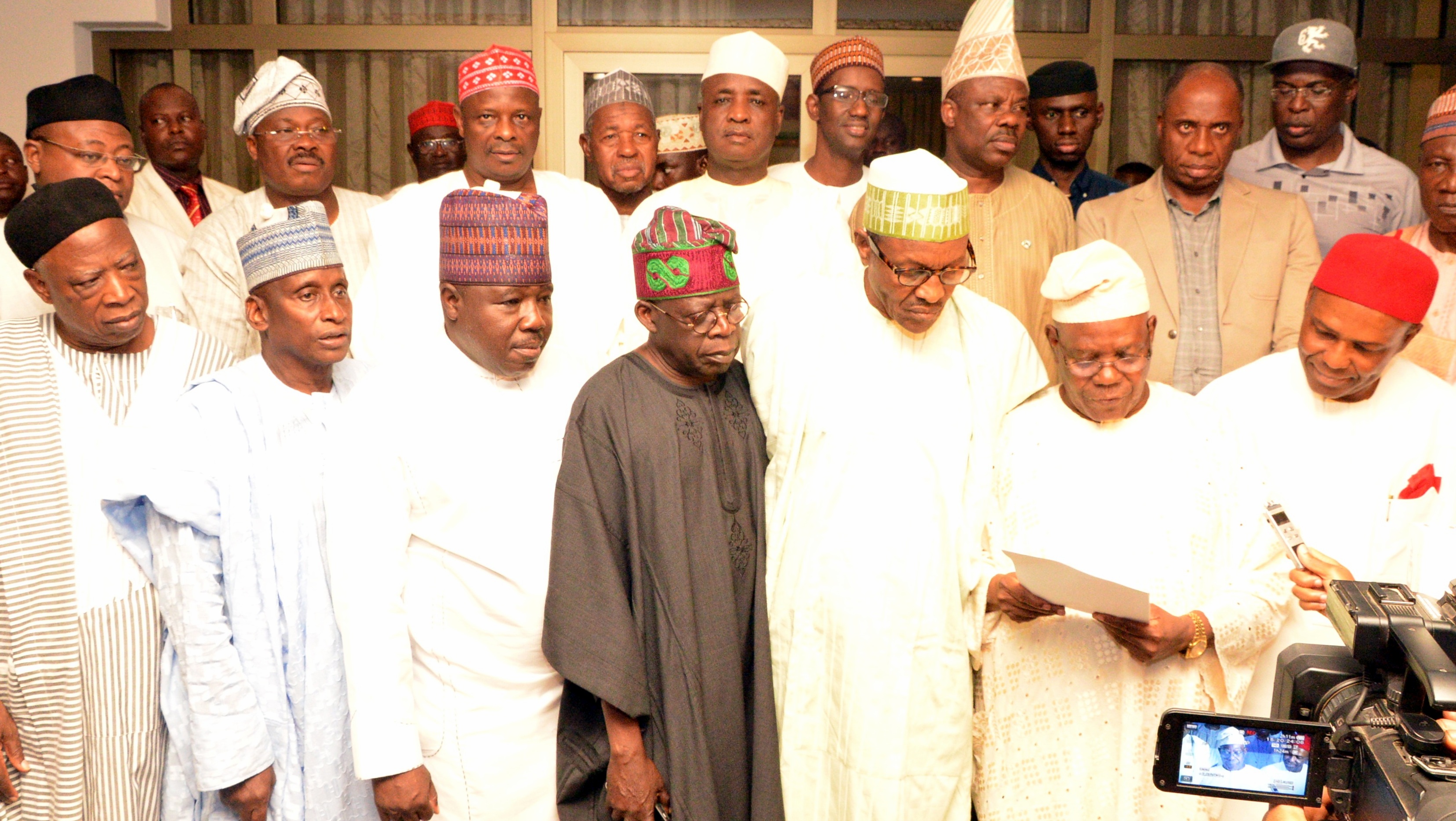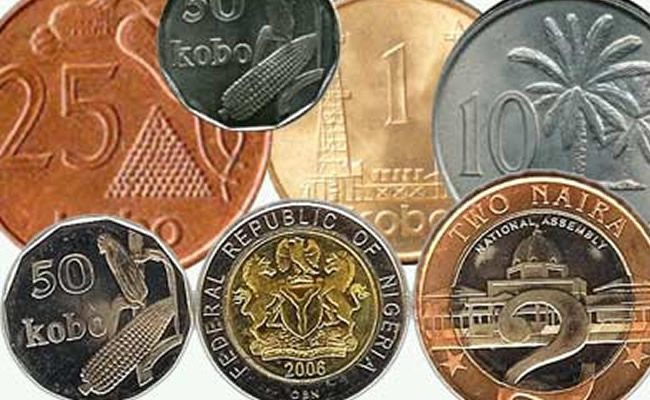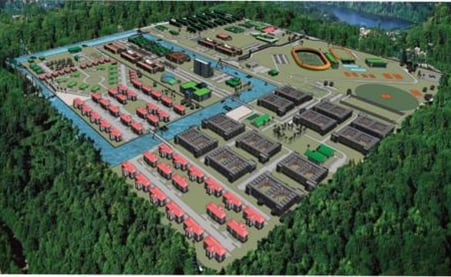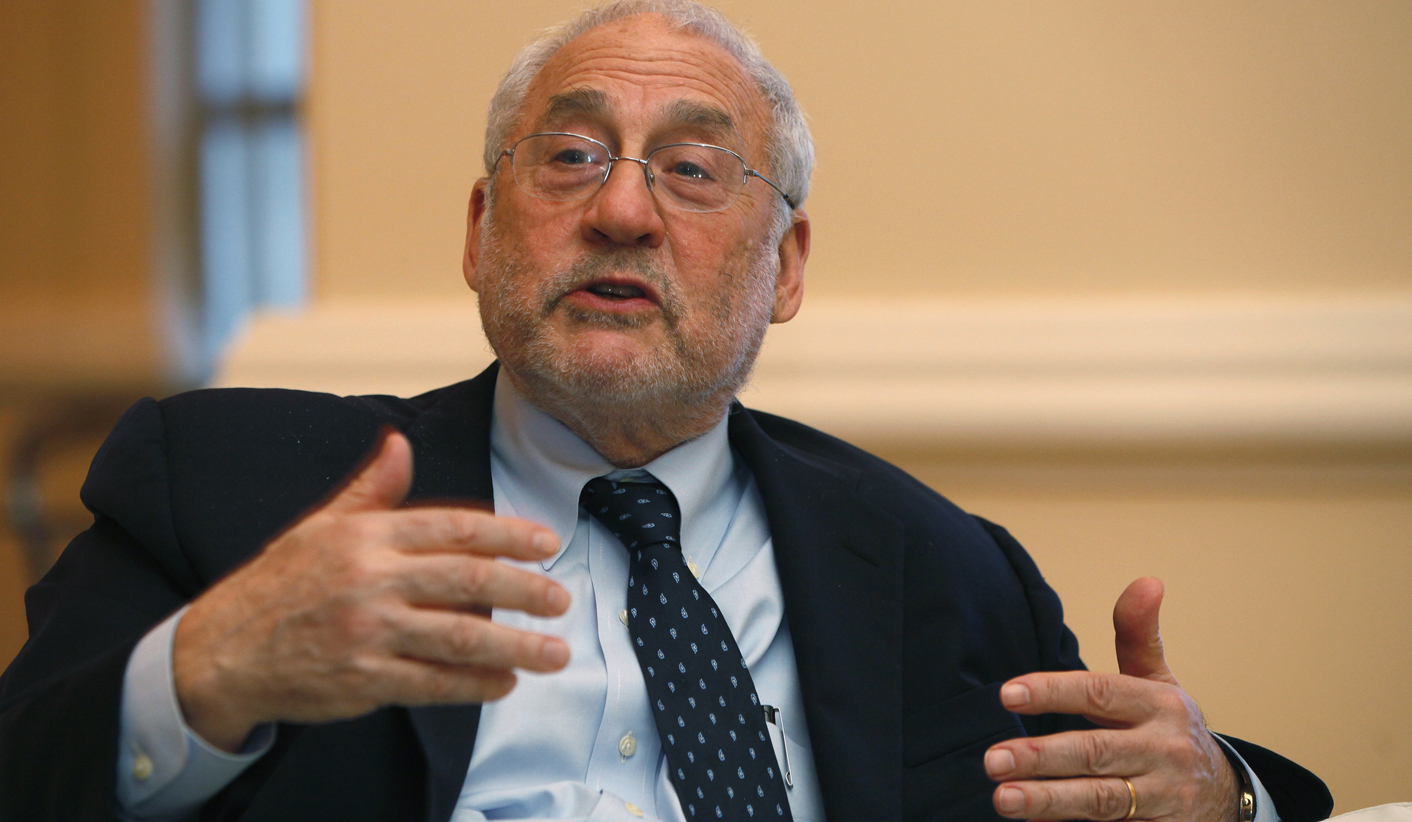By Baba Grumpy
As an individual of Ekiti origin, I bristle at dishonesty and arrogance. I believe legend has it that the Ekiti man will rather suffer than kowtow to the rich man. Of course, many Nigerians will beg to differ considering how Stomach Infrastructure contributed to the election of the current governor of the state.
I benefited immensely from the Nigerian State. Some of my education was free. University was free too to a certain extent. I was grateful for the award of a degree in economics. I have gone one step further by gaining a finance related Masters degree in the United Kingdom. I believe I understand basic economics and I make a fair attempt at understanding the bigger picture. My day job affords me significant insight into how government policies translate into action on main street and how it impacts small businesses and the common man.
Part of my secondary education was in Ekiti State when I lived with my grandfather. As a result, my political antennae was somewhat better tuned than that of my mates. I considered myself very much aware of the political issues in Nigeria.
Just like we have recently experienced in the 2015 general elections, the profligacy leading up to the 1983 general elections was legendary. The kind of money reportedly released to the Omoboriowo group was unheard of and considered obscene.
Advertisement
As it was now, so it was back then, things were tough. Back then people were queuing up for essential commodities as our foreign reserves had been depleted and oil price had tumbled. We were massively in debt as a country. The outgoing government had already implemented austerity measures. Living in Ekiti, I felt immune. Food wasn’t a problem. We grew it including Igbemo rice. Housing wasn’t a problem; Grandpa owned his house since 1933. Buying petrol wasn’t a big deal, Grandpa had a pension, Grandma had a thriving business selling textiles and they both had children doing very well and sending them money.
I remember the years after 1983, as a great admirer of Papa Awo; I was delighted the cheats had been kicked out. I didn’t give a toss about democracy if this was how it was practiced. To be fair, the Buhari government appeared heavy handed although I thought the queues to enter buses at Yaba was a very good thing. That queue endured well after Buhari was overthrown. The corruption trials appeared lopsided in favour of one section of the country.
On the economic front, Buhari appointed people who were relatively unknown but who appeared to master their briefs. The government of the day was determined it wasn’t going to devalue the currency and liberalize the economy as the IMF & the World Bank wanted. Buhari wanted to chart a different course of action and was making some head way. You can read this recent interview by Buhari’s then minister of finance to realize that the end of Buhari’s government happened not because his economic policies were a failure but for various reasons (http://sunnewsonline.com/new/dont-expect-miracle-from-buhari-soleye-ex-finance-minister/)
Advertisement
You have probably heard how bad the Buhari Mark I government was. I’m sorry I will have to disappoint you with the following facts.
In 1982 and 83, the last two years of the Civilian Shagari government, Nigeria’s economic growth was negative – (-1.053% and -5.05% respectively). In the only full year of Buhari’s government, the equivalent figure was -2.02% which somewhat indicated that some of the issues were been tackled. In the immediate two full years after Buhari was overthrown (1986 and 87) economic growth was – 8.75% & -10.75% respectively. (http://www.economywatch.com/economic-statistics/country/Nigeria/year-1984/)
It got significantly worse before it got better and back then I dare say the safety net was a lot better, we were fewer and looked after each other better. Many lives were ruined especially when Buhari’s successor started to liberalize the economy. Many people who were a lot younger than the 13 year old me in 1983 have filled the Nigerian Twitter waves with irresponsible comments about Buhari Mark I. Things they read on the pages of newspapers. My recollection of events is that things were worse in the post Buhari years and before money started to flow again largely because of the upturn in Oil prices. Before Buhari, oil accounted for over 90% of Nigeria’s foreign exchange earnings. After Buhari and post the liberalization of the economy and till today, the ratio has not changed. The proponents of devaluation are asking Buhari to keep doing the same thing in the hope that we will get a different result. There is a swear word for that.
In writing these few words, I have once again come across this article written by the gentleman who is now the Emir of Kano. You can find the full article athttp://www.gamji.com/sanusi/sanusi27.htm If you want to understand the theoretical underpinnings of the steps taken by the Buhari Administration, please make sure you read Emir Sanusi’s words.
Advertisement
The sum total of Emir Sanusi’s words is as follows: NOTHING HAS CHANGED. BUHARI MARK I IS FACING THE SAME ISSUES AS BUHARI MARK II AND HE IS ADOPTING THE SAME METHODS.
Fortunately for Buhari, he will live and die by them. In 1985 he was taken out before anybody could determine if his economic policies worked or not, in 2019, the masses will decide whether to take him out or not. What amazes me though is that Emir Sanusi has changed. What has changed the Emir? His time as CBN Governor? His ascendancy to the thrones of his forbears? Or my cynical self tells me there is something we are about to hear very soon knowing Nigeria’s elite.
What do I think about the prospects of Buhari’s administration? If the following were to happen:
- Implementation of the pro people policies advocated by the regime
- No military or foreign government intervention
- Reasonably good health for a man of his age
- Subject to any agreements about terms in office with the 5 PDP governors and the ACN
Buhari will be re-elected in 2019 without all the profligacy that we witnessed with the 2015 elections.
Advertisement
I have nothing but disdain for the people advocating for devaluation. I have tracked some of the arguments and I have seen the shifts in position to suit what I perceive to be an agenda driven by the same interests who objected to Buhari Mark I. The following are my understanding of the different strand of arguments advocating for devaluation:
- Black market is the real reflection of the Naira exchange rate
- Government should not block access to CBN forex for certain goods. It is wrong to restrict importation as it is cheaper to import those goods than to make them in Nigeria
- For the economy of Nigeria’s size, we are not importing enough
- Devaluation is the solution to Nigeria’s current economic problems
- (3 has now been amended to) devaluation is not the only solution, it is the starting point. (We have not been told the next steps)
- Nigeria is subsidizing some industries using its current exchange rate regime
- We don’t know what will happen after devaluation but it is worth a try
- Devaluation will help us diversify the economy
- Buhari failed in his first coming and will fail with the same economic policies in his second coming
- The current exchange rate policy is restricting the flow of foreign inward investment
And it goes on. You can add your own variant of the argument if you wish.
Advertisement
What you must realize is that even economists of the same persuasion don’t agree on the same policy prescriptions because economics is not an exact science. The IMF has apologized in recent times on its policies in Greece and its evaluation of the British economy and if you read Emir Sanusi’s comments above you will notice that it apologized on its Structural Adjustment Policy prescriptions in Nigeria as well.
Those advocating the devaluation option to Buhari are theorists, paper theorists. They are like Gary Neville of Sky Monday Night Football. When you elect or appoint them into the driving seat, they freeze and are unable to translate their theories into action because real life does not always obey their theoretical postulations.
Advertisement
Why wont these people run for elective positions? But they want someone who had the courage to stand for elections to adopt their paper theories whole scale.
Just so we understand the issues at stake here. Lets go back to the Occupy Nigeria movement. The government increased the price of fuel by c117%. The reaction was spontaneous and the country was effectively shut down and rightly so. In my opinion, that was the beginning of the end of the Jonathan administration. People suggesting devaluation assume that Buhari is not politically astute even if you discount his economic credentials. He is rightly considered a populist and knows fully well that the devaluation policy is anti people.
Advertisement
If for example, Nigeria were to devalue, while the retail cost of a metric tonne of petrol will remain at c$589 (as per PPPRA pricing template) the naira price per litre will increase to N171 at the current naira dollar exchange rate of N400. So gentleman, why don’t you load a gun and give to Buhari instead. Your wish will come true faster that way. By the way, economists don’t have a theory for the loss of political goodwill.
And for those who don’t like populist arguments. We know you ‘allright jacks’. The poor people can go to hell as long as you are all right. As long as you have access to your dollars. As long as some of the dollars looted by Jonathan’s administrations are still in your pockets so that you can buy up the remainder of Nigeria you don’t already own. We know you and we look forward to the day when the poor people have nothing more to eat but the elite. I genuinely hope the poor will be kind enough to eat you the devaluation proponents first.
The latest numbers I have read from one of the devaluation proponents made the point that by not devaluing, Nigeria was giving up cN500 billion in lost earnings. Please listen to this interview by Emir Sanusi (again) (http://www.bbc.co.uk/news/world-africa-16416861) and realize that in 11 months only in 2011, Nigeria spent / lost N1 trillion on petroleum subsidy alone. Do the maths yourself, not devalue and give up N500 billion on everything or devalue and give up N1 trillion on one budget item only. You might say that was 2011 and Oil price was a lot higher. But I did some number crunching (41 million litres per day as per NNPC figures) and arrived at a bill of N1.3 trillion if Nigeria devalued to the current black market levels and kept petrol price unchanged. Yet these are the argument postulated by people who consider themselves bright minds on Nigeria twitter. I suppose its okay for someone to think very highly of themselves but when a former minister and a World Bank Executive praise the same people for serving a garbage of opinion to the misinformed masses. You must worry about the level of discourse on Nigerian Twitter and wonder if it is the right place to be informed. So yes I despair for these people and I have nothing but disdain for them.
Just so we are clear, there is no ban on any items in the Buhari Mark II years. Nigeria has always maintained an import prohibition list (https://www.customs.gov.ng/ProhibitionList/import.php). The Buhari administration decided that some other items will not have access to the country’s forex. So what’s the problem? Why are people complaining? If you import and sell designer toothpicks and your business model and strategy is robust, you don’t need official forex where there is too much ‘Dogo Turenci’ and form filling. Buy your dollars at the Black Market, import your goods and sell. What’s the problem with that?
By the way, how can the black market be the real reflection of the naira exchange rate? The black market is a much smaller market in comparison to the CBN market.
On the issue of job losses because of the current forex policy. Will devaluation too not lead to job losses?
Some talk about CBN / government favouring Dangote’s business and gave the example of the FX sold at CBN rates for his Congo Cement factory. How is this different from that diversification of foreign exchange earning people have been crowing about. If Dangote’s Congo Plant declares dividends, guess where the FX is coming back to?
With respect to the subject of Nigeria subsidizing those who have access to official fx. As I said previously, we can do this or go down the alternative route of subsidising fuel imports. And what is wrong with a populist government subsiding manufacturing as opposed to petrol retailers.
Some devaluation proponents claim that the forex policy is discouraging foreign investment. To make light of the situation, ‘who their FDI don epp’. FDI in Nigeria has been largely in the Oil industry. With the state of that industry good luck with that FDI at any rate of exchange.
To those who think we shouldn’t be discouraging importation because we are under imported. I suspect these people don’t understand how desperate the situation is. We are broke and we don’t have enough to satisfy your need for imported toothpicks.
By the way not all countries in the West operate a free market for their currency. A recent example is the Swiss Francs, which was pegged to the Euro – a free market currency. When the Swiss government noticed that the value determined by the market was hurting their economy, they unpegged the Swiss Franc from the Euro to reduce the value.
The devaluation proponents have not said where the devaluation will end. At N400 to the dollar or when it goes to N800 or N2000. Do we then put a peg at N5000 to the dollar? If we put a peg at that stage, will it still be the free market or a mélange of both?
The devaluation proponents also say that we shouldn’t be worried about inflation. This is bonkers. Economist and policy makers in the West obsess about inflation.
On final note, the Buhari administration has set out the following as part of its key priorities:
- Security of the country
- Conditional Cash Transfer to vulnerable people within the society
- Fight Corruption
- And a host of other policies specifically targeted at the economy.
If you object to any of these priorities, kindly wait for the administration and ambush them in 2019. Goodluck to you.
For those who think the Buhari administration does not have an economic strategy and they are only waiting for oil prices to rise. Waiting for oil prices to rise is a strategy too. It is called sitting it out. What ensured IBB had any legacy of note (generosity and corruption or generous corruption) was a rise in oil prices.
If you want to read a bit more about SAP in Nigeria – please read this article.
Baba Grumpy works in Financial Services in the United Kingdom. He blogs mostly about football at http://babagrumpy.blogspot.co.uk. His Twitter handle is @BabaGrumpy
Views expressed by contributors are strictly personal and not of TheCable.
